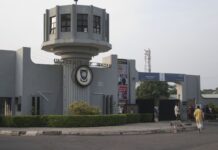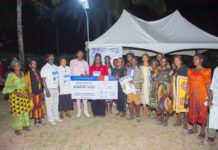Electricity distribution companies (DisCos) across the country yesterday began the commencement of implementation of new electricity tariff regime.
The commencement of the new tariff followed the approval of the Multi Year Tariff Order (MYTO) 2020 by the Nigerian Electricity Regulatory Commission (NERC).
It would be recalled that an attempt by the DisCos to adjust the tariff in July was shelved following nationwide umbrage which led to the federal government’s intervention.
The increment took effect despite a recent directive by the Nigerian Electricity Regulatory Commission (NERC) that a N4 tariff for all customers consuming less than 50kWh of energy per month be maintained until further consultations with the were concluded.
Chairman of the NERC, Prof James Momoh had in a statement stated that the electricity tariff reviews will only follow service-based principles and prior consultation with customers.
“In all cases, poor and vulnerable Nigerians will not experience any increase.
“In line with these expectations, DisCos are directed to engage with their customers on a service-based tariff SBT) structure,” he said.
However, the Eko Electricity Distribution Company (EKEDC), Ikeja Electricity Distribution Company (IE), Abuja Electricity Distribution (AEDC), Enugu Electricity Distribution Company (EEDC), Ibadan Electricity Distribution Company (IBEDC), Kaduna Electricity Distribution Company (KEDCO) and Benin Electricity Distribution Company (BEDC) said in separate statements that they had started implementing the new charges.
In its statement the Abuja Electricity Distribution Company (AEDC) said it had commenced the implementation of the new service reflective tariff plan (SRT) across its franchise area.
It said the new order has clustered customers into five tariff service bands (A-E) and revised the tariff payable by customers based on quality of service.
According to the AEDC, those in category A are people with power supply for up to 20 hours; B (16 hours), C (12 hours), D (8 hours) and E (four hours). While non-MD of the AEDC pays N49.75 per kilowatts, the MD-1 N67.70, MD 1: N67.70, MD N53.05. They are referred to as Maximum Demand Customer and Non-Maximum Demand Customers.
The AEDC noted that the C1 will now pay N37.39, C2 N47.09 and C3 N47.09. Until yesterday, they paid as follows: C1 N36.65, C2 N46.23 and C3 N46.23 per kilowatts.
The R3 and R4 that paid N46.23 will now pay N47.09 per kilowatts.
The DisCo explained that “the Service Reflective Tariffs (SRT) plan is a NERC-mandated tariff structure whereby an upward increment in tariffs will result in substantially longer hours of power supply, good quality voltage profile, swifter response to faults clearing and provision of pre-paid meters.”
EKEDC general manager, corporate communications, Mr. Godwin Idemudia, explained that the new tariff will not affect customers who enjoy less than 12 hours of electricity supply.
He said it had been designed to ensure that customers pay tariffs that are commensurate with power availability and service delivery.
Ikeja Electric in its statement said there would be a deferment of the new applicable tariff for customers in service bands D and E (customers who enjoy less than 12 hours power supply daily over a period of one month for the period September 2020 to January 2021).
It said it will only effect the new tariff once there is appreciable improvement in service quality.
For its part, Kaduna Electric said SBT approved by NERC will be implemented from September to December.
The new regime is service-based as customers on estimated billing will be exempted from the new tariff system.
For customers within Kaduna Electric’s jurisdiction, the tariff cost per Kwh ranges from N66.42 for those in Band A (with supply rate of 20 hours and above) to N45.28 for customers in Band E (supply of 4 hours and above).
Reacting to the tariff hike, the Nigeria Labour Congress (NLC) urged the NERC to take a decisive action on the hike in electricity tariff in the country.
Its president, Mr. Ayuba Wabba threatened to mobilise Nigerian workers to resist the increase in electricity tariff.
“We wish to state that the Nigeria Labour Congress (NLC) seriously frowns at, completely condemns and totally rejects any plan to inflict further pain on Nigerians at this very time of great economic distress.
“It is important to put it on record that the NERC will be putting its name on the wrong side of history if it continues to play the ostrich while a group of portfolio investors make a blood meal of Nigerians.
“Nigerian electricity consumers need the NERC to speak up and act in the defense of the rights of the Nigerian people,” Ayuba said in a statement issued in Abuja yesterday.
He noted the “adamant desire by the DISCOs was to ram through an ill-conceived agenda to further impoverish Nigerians amid plummeting return on service delivery.”
He said the brazen decision was taken in spite of the fact that President Muhammadu Buhari and the national assembly had ordered the DISCOs to suspend the electricity tariff increase till further notice.
“It appears that the adamant desire of DISCOs in Nigeria to ram through their ill-conceived agenda to further impoverish Nigerians through astronomical tariff increase amidst a plummeting return on service delivery has now been deregulated.
“The DISCOs appear to have given themselves the ignoble tasks of taking turns to taunt the will of the Nigerian people.
“Abuja DISCO has adorned the robe of the protagonist in this regard with its announcement of a new tariff plan for electricity consumers within its service area starting from September 1, 2020.
“This move is in spite of the resolution of the Senate of the Federal Republic of Nigeria and even the direct orders of Mr. President that the plans by DISCOs to hike electricity tariff should be suspended until further notice.
“We are not aware of any order by the government or the elected representatives of the Nigerian people de-freezing the order to suspend any plans to inflict more pocket and psychological trauma on Nigerians by way of reckless and insensitive hike in electricity tariff,” he said.
The Manufacturers’ Association of Nigeria (MAN) said the increase was coming at a time that manufacturing was groaning because of deep injuries already inflicted on the sector by the prevailing harsh operating environment, the increasing burden of taxes, and self-generated electricity.
The acting director general of MAN, Mr. Ambrose Oruche, said most of MAN-member companies were classified into the ‘D’ categorisation (D1, D2 and D3), meaning ‘Industrial Consumers’ where tariff is the highest.
“A tariff increase will take its toll, having a drastic negative effect on the gross national product, gross domestic product, disposable income, consumption, consumer price index, employment, government revenue from corporate taxation etc.
“Electricity tariff even if it cannot be reduced should not be increased; any increase on the tariff will reinforce the already high cost manufacturing environment,” he said.
For its part, the Lagos Chamber of Commerce and Industry (LCCI) said Nigeria cannot run away from cost-reflective electricity if it wants to get investments in the energy sector.
“lt is important to inspire the confidence of electricity consumers through a robust metering programme and guarantee of value for money. Cost-reflective tariff is a difficult option, especially given the prevailing economic conditions. But it is the most sustainable option that would salvage the power sector and attract investment,” said LCCI director general, Mr. Muda Yusuf.
He said there must be fixing of the numerous inefficiencies that characterise the entire power sector value chain for the new policy to make an impact.
The leadership of the Organised Private Sector in Nigeria (OPSN) also reacted saying the various projections for generation capacities for different years were made but not attained, yet tariff kept increasing.
“The pertinent questions are, therefore; wouldn’t they have been accomplished?
“Wouldn’t it be better to think more about how to improve generation capacity hence transmission and distribution rather than squeezing the mere 4000 megawatts (MW) to meet all revenue needs of key sharing stakeholders?”
The general secretary of the Federation of Informal Workers’ Organisation of Nigeria (FIWON), Mr. Gbenga Komolafe described the tariff increase as “absolutely insensitive, thoughtless and disdain for the people.”
The chairman, Nigeria Electricity Consumers Advocacy Network (NECAN), Mr. Tomi Akingbogun, said electricity consumers were simply ignorant of what was going on saying members of the public have not been adequately educated on the new billing system.
The president of the Nigeria Consumer Protection Network, Mr. Kunle Kola Olubiyo, urged the federal government to change the pricing methodology of gas.
He said since the companies have spared the residential customers and urban poor of the hike, stakeholders must address the over-priced gas issue while the DisCos implement the new tariff.
Gas, according to him, constitutes about 80 per cent of the electricity tariff components.
He explained that the same gas accounts for over 70 per cent of Nigeria’s energy mix.
He said the government can crash the tariff by addressing the disparity and volatility of gas.
A lecturer in the Department of Political Science at the University of Lagos, Dr Isiaka Adams, said the tariff increase is an indication that the Nigerian government was not sensitive to the plight of the masses.
“This is not the appropriate time to increase the tariff regardless of the excuses or pressure from Gencos and Discos.
“As we speak, the majority of Nigerians have not been metered.
“People are asked to pay N38, 800 for a single-phase meter and the minimum wage in Nigeria is N33, 000 and many states are yet to pay and even the federal government is yet to implement it.
“Some tertiary institutions have not started paying the minimum wage until now.
“The government is burdening people unnecessarily with various taxes,” he said.
Citing recent statistics by the National Bureau of Statistics (NBS), he said many Nigerians are out of job while unemployment has been on the rise.


















































